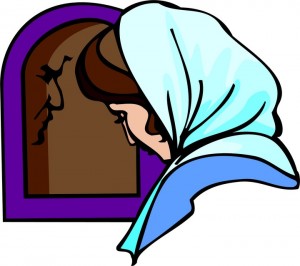The dictionary definition of judgment: “a decision of a court or judge; a misfortune or calamity viewed as a divine punishment.”
The Bible speaks a lot about judgment. When we read about the subject of judgment in the Bible, it’s always about the other guy: someone in the past, or someone in the future, or someone that we consider to be more wicked than we are. The problem is that our pride prevents us from thinking that it is something that could happen to us.
Judgment is nothing more than suffering the consequences of our actions. It’s simply a function of the law of cause and effect. If you jump off of a building, you’ll suffer the consequences of your actions when you hit the ground. Similarly, when we break YHVH’s commandments, we will suffer the consequences. It’s a matter of degrees. To the degree that we obey his commandments, we’ll reap the blessings of obedience. To the degree we disobey them, we’ll reap the negative consequences (Lev 26:3ff cp. 14ff). For most of us, our actions with regard to obedience to YHVH’s laws are a mixture of both good and evil, so we’re reaping both blessings and curses at the same time.
Coming out the mainstream church, most of us have been so indoctrinated with the doctrine of YHVH’s love and grace, that we have a skewed view of his judgments. No one ever talks about judgment. Add to this the idea of the pre-tribulation raptures, and the idea of divine judgment is shoved further into the back of many believer’s minds. If a preacher does talk about divine judgment, they’re often accused of being judgmental, and that shuts down the conversation. No one wants to talk about it since it messes with people’s false view of a totally loving and gracious Elohim, and it also forces people to face the facts of their own sinfulness and wickedness and the fact that they deserve his judgments for their disobedience.
Beyond this, most of us have developed a theology of our own making whereby we excuse and justify ourselves in the comfort zones of our sin. Our hearts become hardened at that level and we often justify ourselves by comparing ourselves to someone who, in our mind, is a worse sinner than we are, thus making ourselves feel Continue reading




